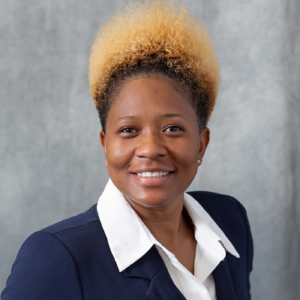VaNetta Clark, an Educational Policy PhD student, is an award-winning educator and educational activist. Her research encompasses the emerging field of social epigenetics, specifically the influence of environmental stressors on gene expression in high-school aged youth (Post-COVID-19), and the essentiality of applied research for the educational advancement of traumatized youth. Ms. Clark is an advocate for pioneering approaches to learning, such as multidimensionality in education and the integration of Quantum Leadership. She is the President of the D.R.E.A.M.S. Institute of Ingenuity, a 501(c)(3) organization, and founder of 22 DREAMS, a fund developed to assist budding high-school entrepreneurs with resources for development and sustainability. The DREAMS Gala is held yearly and showcases the work of participating scholars from underrepresented and marginalized communities. She enjoys family, basketball, and creative expression!
Scholar Stories: Insights from the field
Bayer Crop Science: An Empirical Experience in Global Leadership, Social Innovation, and Greater Possibility
Recently, students from the McDonnell International Scholars Academy received a distinct opportunity to tour the Bayer Crop Science’s Chesterfield Campus, as an enriching experience designed to foster a global leadership mindset and innovation, while stimulating an interdisciplinary approach to solving societal complexities, such as access to nutrition.
As an emerging researcher, similarities in my research interests (i.e. the influence of improper nutrition on the brain development of high school aged youth) to Bayer’s mission, “Health for all, Hunger for none” were noted. While my research inquiry originates from a thought – a phenomenon I wish to explore, Bayer’s agricultural and business processes begins with a seed.
During the tour, several sites would enhance the agricultural understanding and business development of participating McDonnell Scholars through an informed experience. For instance, plant chambers are essential to Bayer researchers, which allows them to cultivate high-grain products, maximizing land use with high-yield results, while remaining committed to their vision of alleviating food scarcity. Its Business-to-Business-to-Consumer Model (B2B2C) affords farmers an opportunity to choose from an array of seeds tailored to their specific soil, climate, and production requirements, thus making production available for purchase. Furthermore, Bayer’s tailored approach to seed treatment through advancements in crop protection (fungicides, herbicides, and insecticides) offers farmers a viable option for minimizing crop damage. In my opinion, these examples express a fundamental understanding of business evolution and a company’s approach to staying relevant, innovative, and competitive.
Bayer’s technological advancements, such as its digital agriculture tools (i.e. Climate Fieldview) allow farmers to analyze collected data from their own farm equipment, and receive prescribed information to maximize yields. Within the implementation of technological advancements are innovative ideas of regenerative farming, which focus on improving soil health and building its resiliency, as well as increasing carbon removals, and maintaining or restoring soil biodiversity. Through regenerative farming, each farm would act as its own ecosystem, which would provide robust agriculture data for a tailored solution to its unique set of challenges. With the expected growth of the world population, in addition to our diminishing water supply, advancements such as these could prove highly beneficial for humanity’s sustainability.
Just before boarding the bus to return to our WashU campus, I recall being filled with a sense of greater possibility through purpose, leadership, and social innovation.
Luther Burbank, an American botanist, horticulturist and pioneer in agricultural science was quoted in the Autobiography of a Yogi, saying, “I see humanity now as one vast plant, needing for its highest fulfillments only love…” Humanity has arrived at a new frontier, and is demanding us to contemplate and implement strategies, specifically interdisciplinary, which may contribute to its well-being and – restoration.
Touring the Bayer Crop Science campus was an exceptional experience, and yields to us an enriching multidimensional model for global leadership and innovation in this new frontier.
